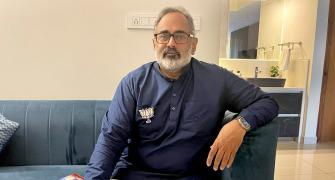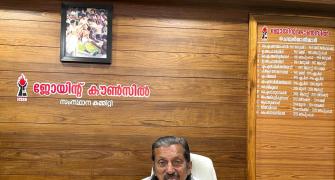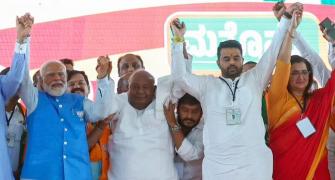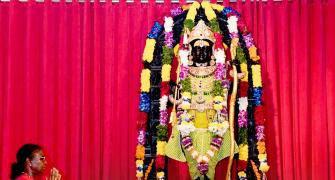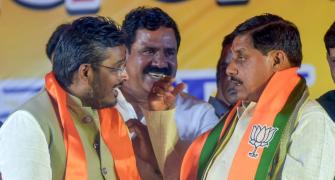Leader of Opposition L K Advani has contended that he had no desire to become BJP president again after the 2004 shock defeat which had depleted the NDA's strength in the Lok Sabha from 304 to 186.
The responsibility for the defeat was collective and there was no question of pinning the blame on any individual, Advani wrote in his book My Country My Life.
Such a thing was totally alien to BJP's organisational ethos, unlike the Congress which forced P V Narasimha Rao and later Sitaram Kesri to unceremoniously step down as party president after its electoral defeats in 1998 and 1999 respectively.
However neither unexpected nor inevitably, but suddenly the then BJP president M Venkaiah Naidu resigned his post on October 2004 for "personal reasons" owning up 'full responsibility' for the defeat although collective responsibility is BJP's accepted mantra.
Advani, who succeeded Naidu said that finding a successor to Naidu was an 'excruciating task'.
"There was no dearth of capable leaders from the younger generation--Sushma Swaraj, Arun Jaitley, Pramod Mahajan and Narendra Modi to name a few. It was my conscious decision to groom new crop of promising young leaders. But almost all of them felt that the party needed a senior leader at the helm at this stage', insisting that I take over as the new chief. Frankly, I had no desire to become the BJP president again. I assured them that I was always available to guide the party whenever it was needed. It is only when former prime Atal Bihari Vajpayee,too, urged him to accept the proposal that I gave my consent and was elected president for the fifth time in BJP's history," Advani wrote.
The BJP leader said that there was some erosion of team spirit both at the centre and several party units. The tendency to voice inner party differences publicly and the temptation to use the media to settle scores was on the rise.
Most often these differences had nothing to do with principles or ideology but were roooted in personal behaviour of certain colleagues and this in turn, promoted groupism and individual loyalties.
The ethos of struggle, sacrifice and discipline and idealism which were all the hallmark of the Jan Sangh and later BJP was weakening.
Nothing pained me more than when in contrast to our own proud projection of BJP as 'a party with difference' but the media started to describe it as 'a party with differences'.

